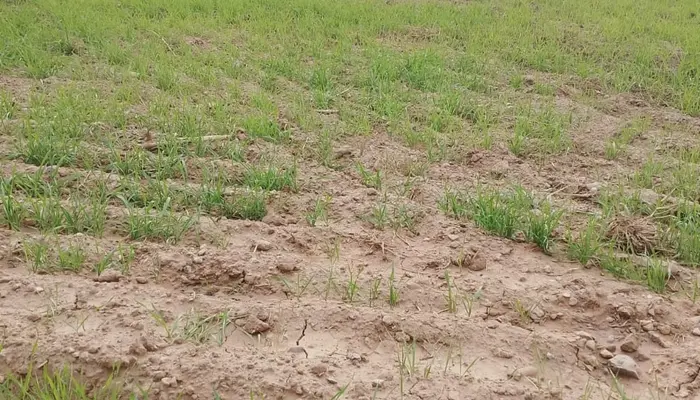Pakistan is battling the impact of a prolonged dry spell this winter, with December passing without significant rainfall. The country faces escalating challenges, including water scarcity, declining agricultural productivity, and worsening public health. Experts warn that without urgent action, the dry conditions could severely affect livelihoods, food security, and economic stability.
Climate Change Amplifies Agricultural Woes
The ongoing dryness has intensified the vulnerability of rain-fed crops like wheat, rice, cotton, and maize, which rely on consistent weather patterns. Climate change has disrupted these patterns, threatening yields and increasing food insecurity. Farming communities, particularly in rain-fed regions, are struggling to cope with erratic rainfall and prolonged droughts.
To mitigate these challenges, the Ministry of Climate Change has launched the Recharge Pakistan Programme. This initiative focuses on water management, rainwater harvesting, and ecosystem restoration. Key measures include using floodwaters to recharge groundwater, reducing flood risks, and promoting sustainable water extraction. The program also emphasizes the development of water storage systems and wetlands to enhance resilience in agriculture-dependent areas.
Tackling Air Pollution and Stubble Burning
During the dry season, the burning of agricultural residue worsens air pollution, particularly in urban areas. Smog, exacerbated by this practice, poses severe health risks. To address this, the Punjab government is providing subsidized machinery like Happy Seeders, which allow sowing without stubble burning. Other tools, such as mulchers and balers, help recycle crop waste into compost and bioenergy.
The Ministry is also encouraging farmers to adopt eco-friendly practices by offering incentives for crop residue reuse. Residues are being converted into biofuels, compost, and animal feed, reducing environmental harm. Provincial agencies are enforcing stricter laws against open burning, imposing fines, and conducting workshops to educate farmers on alternative waste management techniques.
Read: Balochistan Sees Significant Drop in Malaria Cases
Health Risks Escalate Amid Dry Conditions
Increased dust and low humidity have worsened air quality, further aggravating these health problems.
Dr. Junaid Mustafa, a family physician, highlights the importance of maintaining hydration, improving air quality, and ensuring proper nutrition during the dry season. He stresses the need for community awareness, regular health monitoring, and sanitation improvements to reduce health risks. Vulnerable groups must receive special attention to avoid severe complications.
Global Inaction Deepens Local Challenges
Pakistan’s struggle highlights a larger issue: the unmet promises of international climate finance. Despite pledges like the $100 billion annual climate finance goal, funds remain insufficient or delayed. Initiatives such as the Loss and Damage Fund, proposed at COP27, have yet to make meaningful progress.
As climate-vulnerable nations like Pakistan face prolonged dry spells and other natural disasters, the lack of global support leaves them exposed. Addressing this issue requires immediate action, both at the national and international levels, to build resilience and safeguard lives.
This prolonged dry spell serves as a wake-up call, underscoring the urgency of tackling climate challenges and protecting vulnerable communities from its devastating impacts.
Follow us on Google News, Instagram, YouTube, Facebook,Whats App, and TikTok for latest updates
